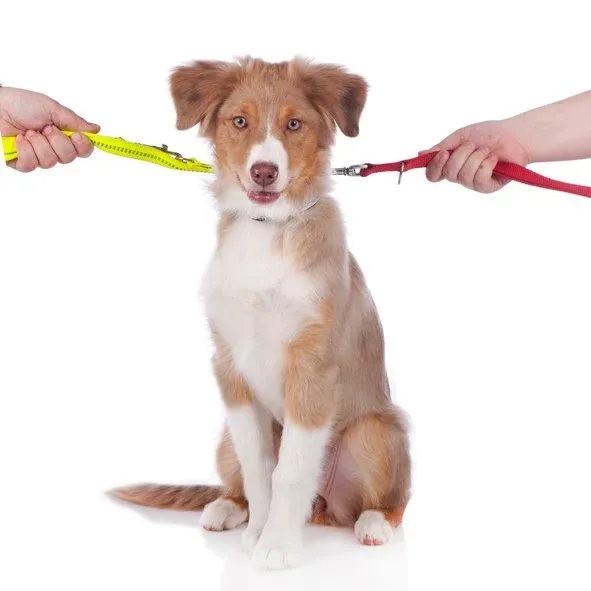
Going through a divorce is a stressful process. However, some situations make your divorce more stressful than others. For example, divorce with pets can be particularly difficult. People often treat dogs as they would treat their children. When the time comes to get a divorce, neither partner wants to give up the pet. Find out how the court handles divorce with pets and what it means for you.
How Does the Court Handle Divorce with Pets
While many individuals understand the basics of child custody in a divorce, few people understand the basics of divorce with pets. However, it is a common scenario. With about 62% of US households having one pet or more, many couples go through it. If you do, it’s important to understand what might happen to you and your pets.
In some cases, there is no need to go to court to handle your pet custody issues. If you and your partner can agree on who gets the pet, then there is no need to go to court. However, this isn’t always the case. Often, both individuals have close relationships with the pet. Neither spouse is willing to give up the pet. In some cases, one partner wants to use the pet as leverage in the divorce proceedings. For example, your spouse might threaten to seek pet custody if you don’t give up the car. It’s a type of extortion, but it does happen.
Because there is usually such controversy surrounding pet custody, the issue can make its way into court. It is not uncommon for pet custody cases to go to court. When they do, the decision is in the hand of the judge. It’s important for you to understand how the court will handle your divorce with pets. The outcome could be different than you expect.
Who Gets the Dog?
It’s a simple question. However, the answer isn’t quite so simple. According to the law, your pet is not a family member. Instead, it’s a piece of property. No matter how strongly you feel about your pet, the law doesn’t change. In your divorce, the court considers your pet as personal property. Fido is no different than your leather sofa.
As personal property, you can include a pet in your prenup. But if you don’t have your pet in a prenup, then you could have a problem. The court needs to consider who is the rightful owner of your pet. While there are many different factors that play into the court’s decision, there are a few common details that matter.
1. Who owns the pet?
If you purchased or adopted your pet before your marriage, then the pet’s custody arrangement becomes clear. The pet often goes to the spouse who owned the pet before marrying the other spouse. However, a pet purchased or adopted after marriage
2. Who takes care of the pet?
In a typical marriage, one individual is the primary caregiver of the pet. This is the person who buys the pet food, takes the pet for check-ups, and cares for the pet. If you are the primary caregiver of the pet, then you might be able to make a case for ownership. The more proof you have of your role, the stronger your case. For example, you might have a neighbor who can tell the court that you regularly walk your dog. Your signature might be on your pet’s license. All of these details are in your favor.
3. Where do your children live?
If you’re going through a divorce with pets and children, then your children matter. Sometimes, the family pet lives with the children. The court does consider the best interest of your children. If it’s in their best interest to live with the dog, then the court might decide accordingly.
4. Who is the better owner?
In some cases, one pet parent might be less suitable than the other. For example, your partner could often travel for work. This could be difficult for a dog. If you have a better schedule than your partner, then the court might award you the pet.
Changes to the Laws
Every state has different laws regarding divorce. This is true of divorce with pets. As the issue is becoming more common, some states are changing their laws. Instead of treating dogs as property, they treat them more like family members.
Illinois is one of the states working towards more fair pet custody laws. As of January 1, 2018, the court considers a pet’s best interests. Each partner needs to explain what makes him or her the more suitable owner. In some cases, the court could issue joint custody of the pet.
If you and your partner are undergoing a divorce with pets, then you need legal help. You deserve to get custody of your furry family member. Contact divorce lawyer Susan T. Perkins today to find out how he can help you.




